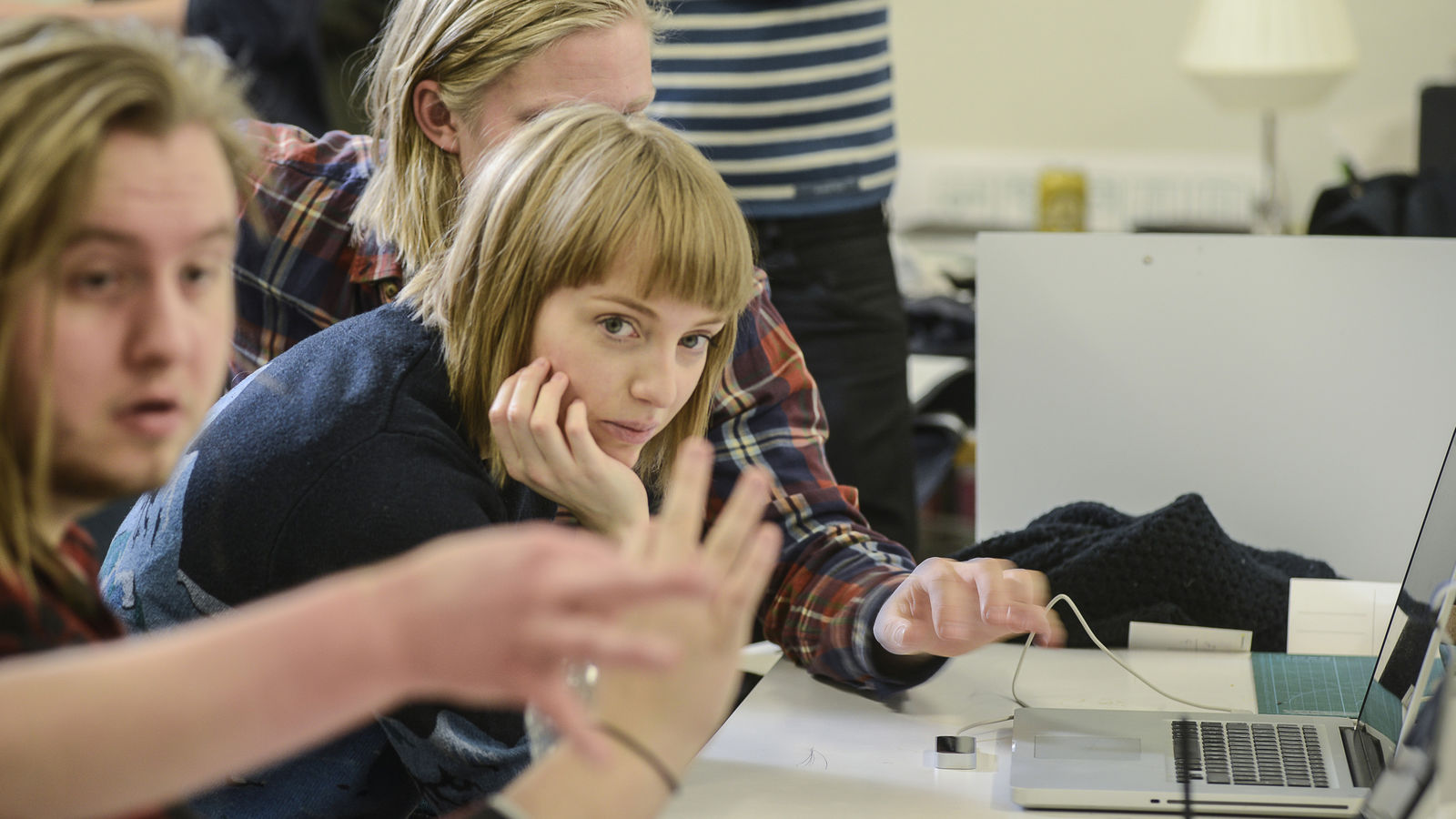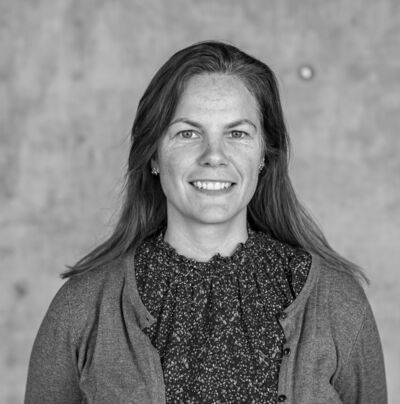BSc Engineering
All students entering their BSc in Engineering are hand-selected for their technical excellence and demonstrated ability for creative and critical thinking skills. Our programmes are three years, full time. Students will earn 180 ECTs and will be able to specialise in their domain of choice and will qualify for one of our two year graduate programmes in order to qualify for registration as a Chartered Engineer (Verkfræðingur) in Iceland.
Overview
 Credits
Credits
180 ECTS
Language
Language of instruction is Icelandic.
The department also offers select courses taught in English for exchange students. See our course catalogue for more information. For prospective exchange students, please contact the International Office for more information on study programmes.
Length of study
Three years, full time.
Engineering Specialisations
Biomedical Engineering
For students interested in applying engineering techniques within the field of medicine, developing new tools and methods for diagnosis and treatment of illnesses, biomedical engineering is the programme for you. Our programme prepares budding engineers for progressive careers in high-tech health care. Students will interact with EET, artificial organs, intelligent prosthetic, CT, radiotherapy, mathematical models, and much more.
In this programme, students apply engineering methodology to solve diverse problems concerning the human body either due to illness and injury or to proactively increase quality of life and safety. Knowledge of the human body is therefore integrated with engineering principles in a cross-disciplinary study program.
Fundamental courses in Biomedical Engineering are mathematics, physics and physiology. It is this focus on physiology and the study of the human body that set Biomedical Engineering apart from other fields of engineering.
Biomedical Engineering students have the opportunity to work on projects in the industry, such as at The National University Hospital and Össur.
Careers
Biomedical Engineers must often work in specialist teams with members focusing in various fields to develop equipment and methods used either within companies or public health services. Examples of projects include the design of prosthetics, implantable cardioverter defibrillator, measurement of biomarkers, development of tools in operating rooms, computer models to evaluate bone structure, and much more.
Technological developments and tools are based on the latest research from fields of health and physical science. Biomedical Engineers are highly sought after in management positions in both industry and hospitals.
To become a Chartered Engineer (Verkfræðingur) in Iceland, students first complete a three-year undergraduate programme, followed by a two-year graduate programme.
Engineering Management
Engineering Management is an interdisciplinary field where engineering applications and theories are used in decision making and management in the broadest sense. The program combines courses in classic engineering and fundamental management as well as more specific courses in operations research, statistics, mathematical modelling that are useful in making decisions in the management of technically oriented problems.
The programme is designed for future leaders and specialists who must be able to address exciting innovative projects, complex global business and the building of new opportunities in industry.
Careers
The aim of the engineering management degree is to educate managers, specialists, and leaders to tackle various projects related to innovation in an increasingly complicated business setting, and create new opportunities in the job market.
To become a Chartered Engineer (Verkfræðingur) in Iceland, students first complete a three-year undergraduate programme, followed by a two-year graduate programme.
Financial Engineering
Financial Engineering is a challenging discipline that has grown in-step with the ever increasing complexity of the financial markets and financial products. The aim of the program is to educate key employees of both financial institutions and corporations, where a deep understanding of financial markets is critical. Financial Engineering is a interdisciplinary field that brings together the theory of finance and engineering methods, mathematical models, statistics, operations research and practical computer science.
Careers
Our programme prepares financial engineers to use engineering methodology and mathematical models to solve complex problems, make financial decisions and participate in the development of new financial products and services.
To become a Chartered Engineer (Verkfræðingur) in Iceland, students first complete a three-year undergraduate program, followed by a two-year graduate program.
Mechanical Engineering
Our programme in Mechanical Engineering is versatile and designed to provide students with a clear understanding in the fundamental subjects of material sciences, physics and objects in motion.
Our students gain valuable skills through emphasis on design, analysis and a creative approach to problem solving. Though the completion of this degree, our students become particularly well prepared for careers in the many rapidly evolving fields including mechanical design, structural mechanics, thermal fluids and energy production, as well as robotics and control. For those looking for further specialisation, students who complete their undergraduate education in Mechanical Engineering are well equipped for graduate studies in a variety of engineering disciplines.
Careers
Mechanical Engineering affects all aspects of modern life, where parts are in motion. Our graduates are sought after by the industry for their discipline, knowledge and skills. Graduates have gone on to work in all sectors of technological development, from robotics to power plant design and management.
Mechanical engineers are involved with machine design, design of energy processes, and project management. Our graduates have worked on the design of vehicles of all types, participating in the design and manufacturing of electronics, development of medical devices, and on structural design. Many mechanical engineers specialise in industrial processes or operations and management.
To become a Chartered Engineer (Verkfræðingur) in Iceland, students first complete a three-year undergraduate program, followed by a two-year graduate program.
Mechatronics Engineering
Our programme in mechatronics engineering emphasises on merging machine elements with modern sensor and control systems. Our mechatronics programme is the intersection of mechanical and electrical engineering, is fused with computer science, which enables students to address modern complex, integrated systems that utilise computer controls. Due to its broad scope, Mechatronics Engineering is an excellent foundation for specialisation in many fields of engineering through graduate studies.
Careers
Mechatronics engineers design, build and operate intelligent products and systems, and are in high demand due to specialisation in automation, industrial computers, and electronics. The integration of component (hardware) and the information technology (software) is the core of our Mechatronics Engineering programme. Students apply their skills to real projects during their study, and often continue on these projects into their careers.
To become a Chartered Engineer (Verkfræðingur) in Iceland, students first complete a three-year undergraduate program, followed by a two-year graduate program.
Structure
Overview of BSc Engineering Programmes (180 ECTS) - PDF
Admission
A matriculation examination from an Icelandic secondary school, Preliminary Study Certificate from RU or equivalent is required for admission. Applicants must have a solid background in mathematics, science, Icelandic and English.
Contact us
We welcome your enquiries via e-mail or phone.


